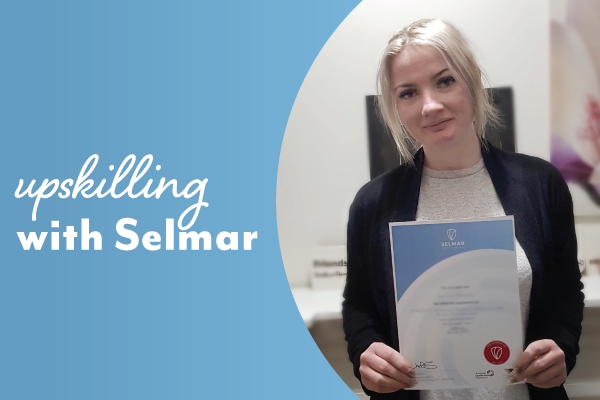There’s training, then there’s high quality training. Want to be a builder? After 36 hours of fast-tracked training, you can graduate with a Certificate IV in building and construction from the Capital Training Institute.
Victoria University offers the same qualification — yet its course takes three years to complete part-time. Graduates may supervise construction of low-rise buildings.
Brisbane TAFE students study full-time for six months to get a Certificate III in aged care. The private Flex Health Group offers the same certificate in just six weeks. Its training manager, Jill Wright, says “the quality is still the same, just more intensive”. “The content of the course is exactly the same,” she tells Inquirer. “There’s a skills shortage and people want to get out and start work.” Two-thirds of her students have found jobs immediately.
A rival college, Fast Track Training Australia, informs students that a Certificate III in aged care will require about 500 hours of study, including 120 hours of work experience. Its website carries this warning: “You may be tempted to enrol in a six-week aged-care course;; however, students should be aware that organisations generally will not hire people who have completed courses in such a short period of time. Providers who offer courses in this manner do so simply for financial gain.”
Such gaping disparities in the length of identical training courses raise questions about the integrity of a vocational education and training system that sucks up more than $6 billion of taxpayers’ money to train two million students every year. As the Abbott government prepares to expose the tertiary education sector to the same “demand-driven” market forces, industry is concerned thatdeficiencies in the VET system set an alarming precedent.
Across Australia, 5000 registered training organisations — including 60 government-owned Technical and Further Education institutes — are competing to enrol the 1.5 million government- subsidised students, 500,000 full-fee-paying domestic students and 37,000 international students.
For many courses, including childcare and aged care, the taxpayer hands colleges thousands of dollars upfront for every student who enrols — regardless of whether they attend or graduate.
Restaurant and Catering Industry Association chief executive John Hart — a member of the Prime Minister’s Business Advisory Council — was appointed to chair the federal government’s new Vocational Education and Training Advisory Board last month. He says quality control has been a problem for “many years”.
“This leads not only to government money being wasted but employers’ time and effort being wasted,” he tells Inquirer. “We’re still seeing examples where the system is being rorted. There are loopholes that need to close.”
Restaurateurs complain to Hart about the calibre of some freshly qualified cooks who “don’t have any of the basics”. “That’s why we need to review the quality standards to make them more outcomes focused … based on what a graduate can do,” he says.
Hart’s concern about the poor quality of some vocational training courses is echoed across industries. Master Builders Australia chief executive Wilhelm Harnisch laments the “dumbing down” of training for the building trades. “Master Builders is concerned there’s been a dumbing down through certain RTOs providing quickie courses that do not satisfy the needs of industry,” he says.
The Capital Training Institute website informs students that its Certificate IV course in building and construction requires 12 three-hour sessions of training, with “no pre-requirements” for enrolment. General manager John Pfeiffer explains that students also have to spend an extra 20 hours a week on assignments and general study. “The course is onerous and only accomplished construction professionals can get through it,” he tells Inquirer. “The regulators have not set any prerequisites or eligibility criteria for this course.”
Even so, he says, the company enrols only existing construction workers with a decade’s industry experience. Students are charged between $1782 and $5400 for the course, depending on how much state governments pay towards the course fees.
Aged and Community Services Australia, representing not-for-profit aged-care providers, is worried that staff with the most basic qualification, a Certificate III, have not been trained to do their jobs.
“Because there are staff shortages there is a temptation to take what you can get,” says the group’s chief executive, John Kelly. “It’s a travesty. You get people with language issues. Even the longer Cert III courses — forget the six-week ones — have no coverage of physiology, so carers think people who’ve got dementia are nasty.”
Kelly says only high-quality quality courses should get taxpayer funding. “Courses that are two to six weeks and can be done from your home computer don’t even pass the smell test,” he says.
“It’s a bit of a rort. I’m a believer that competition is good, and you should use the private market as much as possible, but you must have safeguards to ensure it’s delivered in a way that has community accountability.”
Kelly wants better oversight of the system: “If you’re half-smart you can work out how to manipulate it really well.”
The federal government’s regulator, the Australian Skills Quality Authority, sanctioned 297 RTOs last financial year — cancelling registration for 25 colleges and suspending 49 others. ASQA deputy chief commissioner Dianne Orr says she is “concerned about the integrity of qualifications” offered by some RTOs.
“The public and industry need to have confidence in the qualifications that are being issued, and that the people holding those qualifications have the competencies,” she says. “We are concerned about the integrity of the vocational education system. We don’t want it to be devalued by some of the practices of the providers.”
An ASQA investigation last year revealed that up to 45 per cent of colleges were in breach of marketing and advertising rules.
More than half had websites that were marketing qualifications in “unrealistically short time frames. Some online training “colleges” were in fact “brokers” who had gathered the names of training providers from the national register and used them to lure students in return for a cut of the tuition fees.
Orr says it is “extremely unlikely” a student can be taught a Certificate III course properly in six weeks, even though some may be fast-tracked because of experience working in the field. “We are very concerned that some new entrants to those industry areas are getting such short periods of training,” she says. “We ask to see evidence of how they manage to do it in that time.”
Orr acknowledges that upfront payment of fees and government subsidies may encourage RTOs to enrol as many students as possible, at the expense of quality training. “Obviously there are providers who want to follow the money and are driven by the market and wanting to enrol as many students as they can get,’’ she says. “We do acknowledge that funding does drive behaviour.”
Australian Childcare Alliance vice-president Judy Atkinson owns four childcare centres in Adelaide, and operates a training company called Childcare Ser vices Training. “Intermediaries” from “migrant groups” regularly phone or email RTOs, she says, offering to pay $2000 for a Certificate III in childcare without students attending a course. “They say they want to enter into a partnership with the training organisation but provide their own trainer and do the assessment,” she tells Inquirer. “They just want the training organisation to issue the qualification and they will pay the full fee.” Atkinson gets their details and reports them to ASQA. “We certainly wouldn’t issue a qualification to anybody we didn’t assess,” she insists.
The owner of a Victorian RTO, who does not want to be identified, tells Inquirer how a migration agent offered to pay her $22,500 to issue management diplomas to “25 senior managers from China” without having them attend the 12-month course. “I said I didn’t want anything to do with it,” she recalls, “and they said that if I don’t do it, someone else will.”
Atkinson recently interviewed a job applicant who had studied only 10 weeks to attain a diploma of childcare — a qualification that would take two years full-time at a TAFE college. “It is clear she did not possess the competencies required for getting those qualifications,” she says. “She did not speak much English. No one would have employed her no matter how desperate they were because it was clear she had no knowledge or experience of working with children.” Atkinson feels sorry for graduates who are “getting a piece of paper that’s worth nothing;; they’re not employable”.
New quality regulations require that all childcare workers have a Certificate III, a diploma or a degree. But Paul Mondo, who owns three daycare centres in Melbourne, warns the industry is struggling with “underskilled and undertrained staff”. “I had one interview last week where the applicant was asked about staff ratios and didn’t know what that meant,” he recalls, referring to the basic rule of how many staff are required to care for a roomful of children. Another graduate had never changed a nappy.
Mondo dobbed in a training provider that gave his staff the answers to a test on a weekend course. “The educator wrote the answers to the questions on the whiteboard and the students copied them into their book,” he says. “I reported that because I don’t think it’s fair.”
The existing training rules do not require RTOs to provide external assessments. One RTO, Australian Child Care Career Options, assures prospective students that their work will not be marked by a “stranger”. “The person who trains you will also be the person who will mark your work as well,” its website states. “Therefore you don’t have a ‘stranger’ marking your work.”
Assistant Minister for Education Sussan Ley says new training standards require students to carry out 120 hours of work placement at a childcare centre before graduating with a Certificate III, or 240 hours for a diploma. She has asked ASQA to crack down on the sector. “It is important that we make sure these improvements in quality are not compromised by ‘tick and flick’ courses that have the sole aim of getting people over the line quickly, rather than delivering meaningful experience and training,” she tells Inquirer.
Despite the requirement for on-the-job training, Mondo says some training providers still “pressure” childcare centres to sign off on the work experience students, even if they are clearly incompetent. One RTO asked him to video a student interacting with the children — a request he refused — to avoid sending out a trainer to check on her progress.
Industry Minister Ian Macfarlane’s department is drafting new regulations to strengthen controls on RTOs. “The new draft standards make it clear that RTOs must communicate who will deliver the training, where and how it will be delivered, how long it will take and what qualification it will lead to,” he tells Inquirer. “RTOs that offer short course diplomas should be on notice that they will be under increasing scrutiny to justify that their course offerings meet the standards.”
Australian Chamber of Commerce and Industry training director Jenny Lambert hopes the new standards will help ASQA “come down like a tonne of bricks” on substandard RTOs.
“A lot of state and federal money has gone into training companies that are not meeting the needs of the labour market, she says. “We are hopeful, rather than confident, that once we get some better regulatory standards in place we will start to see a limiting of these poor providers.”
The Australian Education Union pins the problems on deregulation of the VET sector, which let private providers compete against the established government-run TAFEs for public funding. “Providers are able to take government subsidies and offer substandard courses, often for free, or even with incentives to enrol like free iPads for students, while pocketing a profit,” says Pat Forward, the union’s federal TAFE secretary.
Unions fear flaws in vocational training could infect professional education too, as a result of the Abbott government’s plans to deregulate the tertiary sector. A Senate committee is reviewing the government’s legislation to extend taxpayer funding from universities to private colleges. For the first time non-university providers will be able to pocket public funding for bachelor degrees, diplomas, advanced diploma and associate degree courses. Providers will be able to compete on price.
National Tertiary Education Union president Jeannie Rea predicts that “businesses will be set up in Australia for the express purpose of being able to gain a government subsidy, rather than educating students to get a proper qualification”.
Lambert hopes the government has learned from the VET experience. “Providing there’s not too much chasing of the money over quality, and provided the tertiary quality regulator is on top of things, hopefully that will be able to be addressed,” she says. “I’m more confident the higher education sector won’t go off the rails.”
As seen on The Australian.



